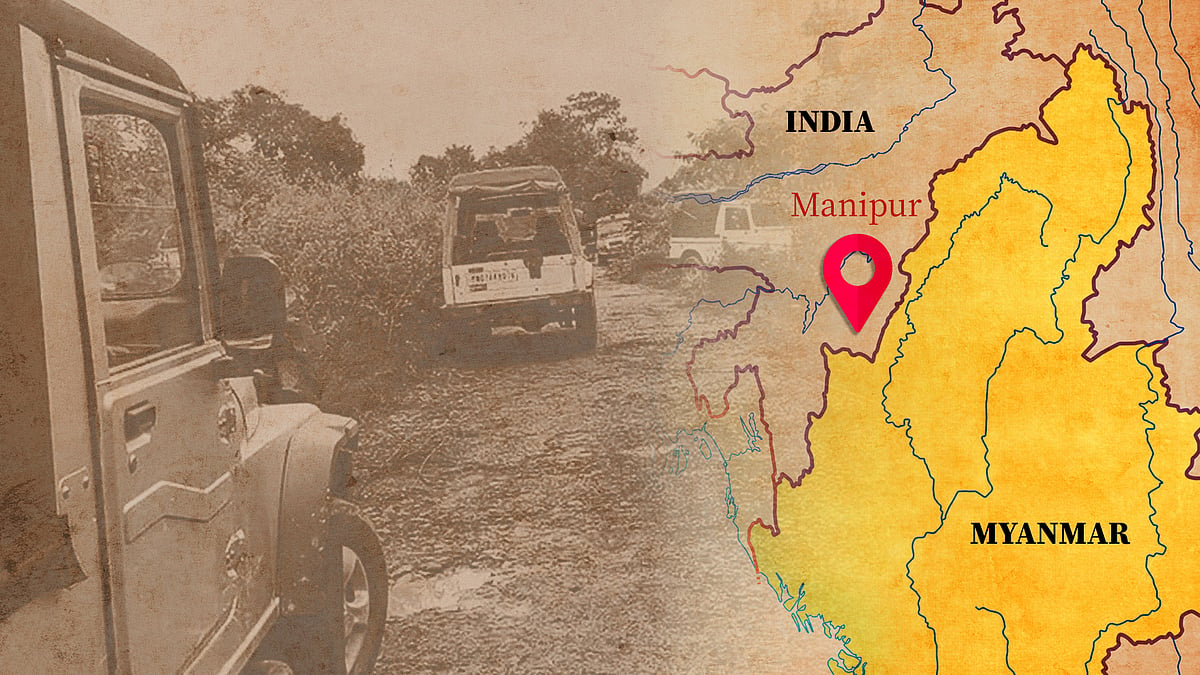Promised rehabilitation, Myanmar refugees are now trapped in the Manipur conflict
They were to be moved to a shelter home and put in touch with the UNHCR, but the ethnic conflict halted all plans.
When a group of 81 refugees crossed the border from Myanmar to Manipur since 2021, they hoped for safety after a military coup toppled their government back home.
But years later, they’re trapped in another conflict – the ethnic violence that began between the Kukis and Meiteis in Manipur in May.
In January, all 81, including 10 children, were arrested by the Manipur police because they did not have “valid documents”. A local court recognised them as refugees, not illegal immigrants. It then directed the detaining authority to give them access to the United Nations High Commissioner for Refugees and other organisations to receive assistance with respect to legal procedures and documentation.
But nearly five months later, with the ethnic violence continuing across Manipur, around 52 of the refugees remain at a detention centre outside Sajiwa jail in Imphal. One had died in February. The others – about 28, including the 10 children – were released and now live in temporary accommodation near Kuki villages.
“Before the conflict, the Manipur government was evolving a policy to deal with the Myanmar refugees,” said Babloo Loitongbam, director of a group called Human Rights Alert that has been working with the refugees. “But after the conflict, everything is frozen. Nothing has been progressing.”
Plans stalled
The refugees are originally from Tamu district in Myanmar’s Sagaing region, which borders India. The district has witnessed violent protests since 2021, leading to a significant influx of people from Tamu to Moreh, located on the India-Myanmar border.
The 81 refugees also settled in New Salbung village in Moreh. When they were picked up by the state police in January, they allegedly admitted to entering India illegally to escape the military coup back home.
The 10 children were produced before a juvenile court, while the 71 adults appeared at the Court of the Judicial Magistrate, First Class in Moreh.
According to court documents accessed by Newslaundry, the court noted that India is party to the Universal Declaration of Human Rights, of which Article 14 says “everyone has a right to seek and to enjoy in other countries asylum from persecution”.
It should be noted that India is not a signatory to the 1951 Refugee Convention or the 1967 Protocol, and does not have a national refugee protection framework.
The court then deemed the 71 detainees as “foreign nationals fleeing persecution, being asylum seekers and refugees”, said to keep them away from the general population in jail, and to move them to a detention camp. It also said regular medical examinations must be conducted, with six senior citizens getting “special treatment”.
It also said the detainees must be given “access to give contact and to be contacted by UNHCR”.
The following month, in March, the Manipur government sent a team of three state ministers to Moreh to study an area where a “shelter home” was proposed for Myanmar refugees. A site was selected and the land was cleared.

Parallely, some refugees asked the state government for refugee cards, health facilities and education for their children. According to lawyers and activists, they told the government they would return to Myanmar once peace was restored.
But then the ethnic conflict began in Manipur, and all plans and projects came to a standstill. The “shelter home” was never built.
Dr Myo, the president of the Burmese Refugees Committee of Kabaw Valley, which is where most of the refugees are from, told Newslaundry the families and childrens of the detainees still in jail are “struggling to survive”.
“Manipur has been witnessing a very disturbed situation for almost two months. The government can no longer guarantee the safety of the detainees,” he said. “On humanitarian grounds, we would like to request the government of India to release the arrested Burmese refugees as soon as possible.”
In February this year, Manipur chief minister N Biren Singh said the state has 393 “illegal migrants” from Myanmar of which one was deported, 107 are in judicial custody, 105 at detention centres, and 180 released on bail.
Loitongbam stressed that there is an important difference between “illegal immigrants” and refugees or asylum-seekers. “The first category comprises those who migrated for economic purposes while the latter seek refuge to escape persecution. Conflating the two categories is problematic.”
He also said the Manipur government has not been consistent on the refugee issue, unlike neighbouring Mizoram, and the lack of a refugee policy is adding to their woes.
“In India, Myanmar refugees are dealt with by the UNHCR but its office is in Delhi,” Loitongbam pointed out, “not in Mizoram or Manipur where the vast majority is housed. Travelling to Delhi is impossible for most refugees.”
 Manipur ambush: Along borders, a complex weave of militant and ethnic rivalries, history of Myanmar links
Manipur ambush: Along borders, a complex weave of militant and ethnic rivalries, history of Myanmar links